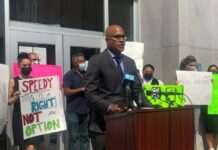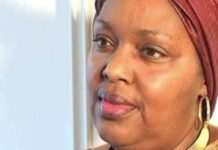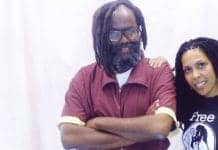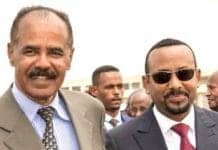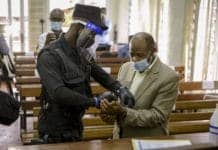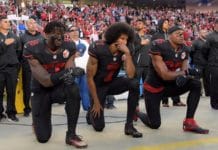by Ann Garrison
KPFA Weekend News broadcast Nov. 22, 2015
In Rwanda and Burundi, the massacres of the last 20 years have followed the assassination of Hutu presidents. First, the assassination of Burundian President Melchior Ndadaye in Burundi in 1993, then the assassination of Rwandan President Juvenal Habyarimana and Burundian President Cyprien Ntaryamira in 1994.
Now insurgents in Burundi claim to have fired mortar rounds on the Burundian president’s residence in Bujumbura, the country’s capital.
Transcript
KPFA Weekend News Anchor Anthony Fest: Agence France Presse is reporting that so-called “Burundian insurgents” claim to have fired mortar rounds at the presidential palace in Burundi’s capital city, Bujumbura. KPFA’s Ann Garrison asked the U.S. State Department to respond to the presumed attack on Burundian President Pierre Nkurunziza’s residence.

The department replied that they had contacted the U.S. ambassador in Bujumbura for comment but had had no further response. Ann Garrison also spoke to Jeff Drumtra, who returned several weeks ago from five months work as a U.N. official in Rwanda’s Mahama Refugee Camp near the Burundian border.
KPFA/Ann Garrison: Today, Agence France Presse reported that “Burundian insurgents” boasted of firing mortars at the presidential palace in Bujumbura – that is, at President Nkurunziza’s residence. Do you have anything to say about what this could mean?
Jeff Drumtra: Well, it’s hard for me to analyze that because that happened inside Burundi. I was on the other side of the border in Rwanda.
But I can say, having worked on issues of Rwanda and Burundi on and off for more than 20 years, that we know, historically, that the violence gets worse and the risk of mass atrocities becomes much more serious when both sides feel that they have been victimized. And so, a mortar attack on the presidential palace – if it were to hit its mark and actually create a large number of deaths, or even the death of a president – would certainly create a situation where the ruling party and everyone who voted for the ruling party in Burundi would feel victimized at a whole new level.
And if something like that were to happen, that’s when, historically, violence in Burundi becomes much worse, and that’s what everybody fears here.
Up to this point, the violence in Burundi has largely been political in nature. There’s always an ethnic tinge to it, but we’re told that it’s largely political. But everyone’s fear is that the violence in Burundi could flip into wholesale ethnic violence.

It can produce tens of thousands of deaths of innocent people in a short period of time if the violence escalates to a whole new level. The violence in Burundi now is bad, but it is not as bad as it could get if things really get out of hand.
KPFA: By both sides, you mean Hutu and Tutsi?
JD: If it gets to that, yeah.
KPFA: If it gets to that?
JD: If it becomes totally ethnic in character. Right now, as I said, there’s an ethnic undercurrent, but it seems largely politically oriented right now. There are plenty of Hutu in Burundi who oppose the ruling party and the third term of the president.
But if you were to have a wholesale invasion of Burundi by an army organized by the government of Rwanda and sent into Burundi – Burundian refugees – that would tilt the dynamics of the violence in Burundi instantaneously. And that’s what everybody fears.
KPFA Anchor Anthony Fest: That was former U.N. official Jeff Drumtra speaking to KPFA’s Ann Garrison. Drumtra stressed that he completed his employment contract with the U.N. several weeks ago and was not speaking in any official capacity. The Washington Post published Drumtra’s letter, “Burundi’s Dangerous Neighbor,” earlier this week.
Oakland writer Ann Garrison writes for the San Francisco Bay View, Black Agenda Report, Black Star News, Counterpunch and her own website, Ann Garrison, and produces for AfrobeatRadio on WBAI-NYC, KPFA Evening News, KPFA Flashpoints and for her own YouTube Channel, AnnieGetYourGang. She can be reached at anniegarrison@gmail.com. In March 2014 she was awarded the Victoire Ingabire Umuhoza Democracy and Peace Prize for promoting peace in the Great Lakes Region of Africa through her reporting.

 Store
Store



